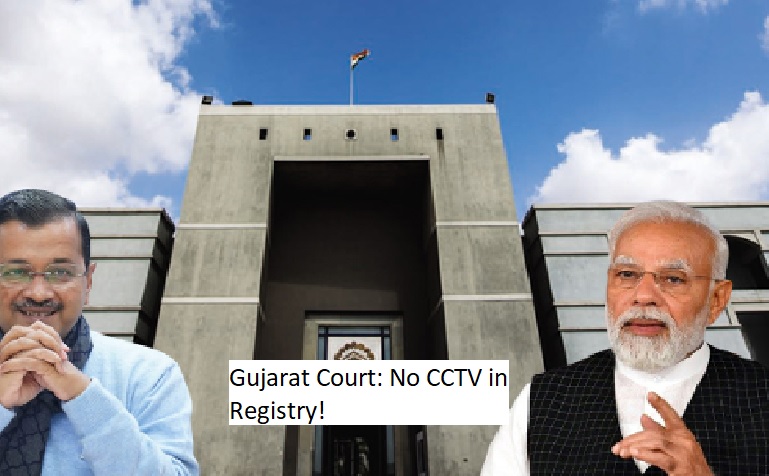


The Gujarat High Court has recently found itself in a state of astonishment and concern due to the notable absence of a comprehensive Closed-Circuit Television (CCTV) camera system within its Registry department. This revelation has prompted significant worries regarding the aspects of security and transparency within the court's administrative functions. While some sections of the Registry do have CCTV cameras in place, the Court expressed dismay over the lack of a fully integrated and robust surveillance system.
In response to this alarming revelation, the Gujarat High Court has taken proactive measures to address the issue promptly. The Court, recognizing the importance of ensuring security and maintaining transparency in its operations, has directed the Registry to initiate appropriate actions. These actions include following due procedural protocols and obtaining necessary approvals from relevant authorities, such as the state government and the concerned Committees of the Court.
To expedite the process and facilitate a seamless implementation of the CCTV camera system, the Court has suggested that the Registry may seek assistance from the Secretary of the Legal Department. This strategic move aims to streamline the bureaucratic procedures and overcome any potential hurdles in the swift installation of the much-needed surveillance infrastructure.
This development is intricately linked to a larger context involving a case that alleges corruption by a lawyer appointed as a Court Commissioner in Debt Recovery Tribunal (DRT) proceedings. The Court had previously expressed its displeasure over instances of tampering with its records, specifically in a case related to alleged corruption within the Debt Recovery Tribunal in Ahmedabad.
The gravity of the situation is underscored by the Court's assertion that the proper functioning of not only the High Court but every court in the state, including lower courts and tribunals, is essential. The Court emphasizes that adherence to the law and the integrity of court records are paramount. Any compromise in these aspects could erode public trust in the judiciary, a foundation that is crucial for the effective functioning of the legal system.
Advocate Saurabh Mehta, representing the Bar Council of Gujarat, informed the Court that the Bar Council has taken cognizance of the tampering with records at a specific time frame, namely between October 9, 2023, and October 25, 2023. Acknowledging the severity of the situation, the High Court has directed both the Registry and the Bar Council to collaborate closely during further inquiries into the matter.
Looking ahead, the Court has scheduled the matter for further consideration on December 7. By this date, the Court expects the Registry to submit a comprehensive and conclusive report detailing the actions taken to address the lack of a comprehensive CCTV system. The report is anticipated to provide a roadmap for the installation of an efficient surveillance infrastructure within the Registry, aligning with the Court's commitment to upholding the highest standards of security and transparency in its operations.
In summary, the Gujarat High Court's response to the absence of a comprehensive CCTV system in its Registry reflects a commitment to proactively address issues that could potentially compromise the integrity of court records and erode public trust. The Court's directive to the Registry, coupled with its emphasis on collaboration with relevant authorities and adherence to due procedures, underscores the judiciary's dedication to upholding the principles of justice and transparency. The scheduled follow-up on December 7 signals the Court's intention to monitor progress closely and ensure the swift implementation of measures to rectify the identified shortcomings.
TAGS: Gujarat High Court CCTV camera system Registry department Security Transparency Court directives Approval procedures